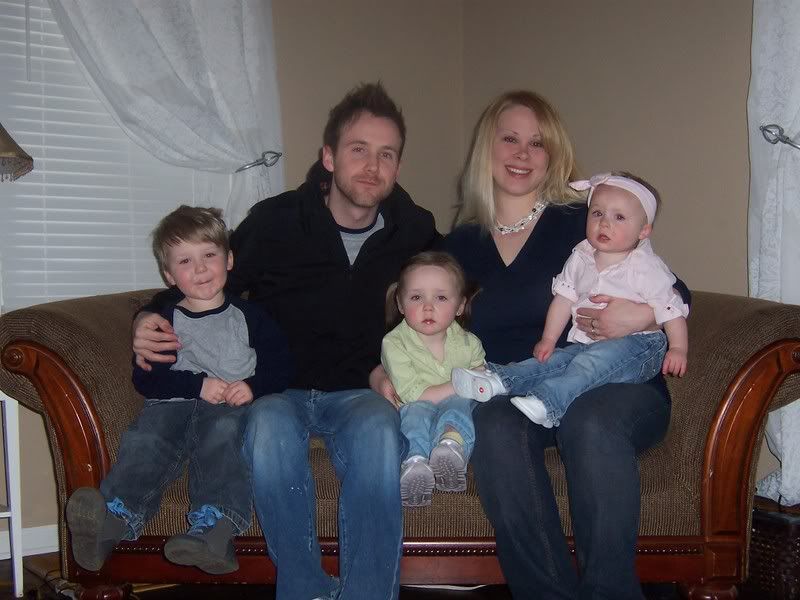 While TV is overrated, over viewed, and an overgrown jungle of commercialism, there are shows that I enjoy. In particular is a program called, Living with the Mek Tribe: The Adventures of Mark and Olly, on every Sunday at 10 p.m. ET on the Travel Channel. Every week I look forward to the scenery, the simplicity, and the sage wisdom spewed from the mouths of the naked inhabitants of Papua New Guinea.
While TV is overrated, over viewed, and an overgrown jungle of commercialism, there are shows that I enjoy. In particular is a program called, Living with the Mek Tribe: The Adventures of Mark and Olly, on every Sunday at 10 p.m. ET on the Travel Channel. Every week I look forward to the scenery, the simplicity, and the sage wisdom spewed from the mouths of the naked inhabitants of Papua New Guinea.
Dig out any cultural anthropologists dictionary of dirty words, and you will discover the vile language uttered and discussed on this weeks episode: MISSIONARY. It is true, isolated cultures world wide have been eternally altered by crusaders of various religious messages. More often than not, they are credited with atrocities by anthropological academia; disease, cultural decimation, exploitation, etc. It does seem that human nature is quick to judge, quick to dismiss the good accomplished by do-gooders of all types.
Anyway, when the indigenous began talking of the missionaries who had visited there tribe long ago, my ears perked up. Based on the commitment to their heritage and the ways of their ancestors, I was surprised to discover the Mek tribe had interacted with missionaries at all--the tribe feigns anything western. They sport only traditional clothing, eat only traditional foods, use no metal tools or blades, and entertain fascinating religious beliefs. I did notice that many of the tribe's men and woman had biblical-esque names, but had dismissed this as an anomaly.
But then the villagers brought up the missionaries. In fact, they held them in high regard. Many of the teachings of the missionaries had stuck. The chief, in discussion with the western explorer, Mark, stated that the missionaries had showed them the ways of peace. He explained that they had been taught to love the neighboring tribes, and had thrown away their traditional shields. He said something to the effect of, "before the gospel we fought and bickered with each other." When asked what role the gospel plays in their society now, the cheif spoke favorably. He stated that having the gospel in the village garuantees good crops.
I was a little put off. Is that it? It is clear the current religious beliefs of the Mek tribe don't mirror the message of the gospel. Yes it is good that the tribes have a higher regard for peace, but the past missionary efforts have been relegated to a mere good luck charm for bountiful crops (tribal prosperity message?). The message of atonement through the death and resurrection of the Christ is clearly misunderstood, if even known by the Mek. Was it worth it? Were the tribes' ancestors truly "evangelized?"
Tuesday, March 25, 2008
Missionaries, Living with the Mek Tribe
Posted by
nate
at
6:15 PM
![]()
![]()
Labels: Living with the Mek, Missions
Subscribe to:
Post Comments (Atom)









9 comments:
Maybe they weren't completely evangelized, but i do respect the idea that whatever missionary was there, didn't try to bring western culture. I think too often we put too much emphasis on changing a culture when we bring the Gospel.
I agree Vince. Jesus can transcend culture.
"tribal prosperity message"
I actually LOL'd at that one!
That was one short answer. There were others that answered differently.
I saw, I believe Olly, scoff at the fact the missionaries asked them burn their old war weapons, shields etc., in a big pile.
Had the missionaries NOT shown up they may have wiped each other out then there would be no MEK tribe at all.
Cool was the prayer for the chief who had malaria, or was it truly a witch sucking his blood at nite.
Right Skoalman...I agree. I saw the pain in Ollie's face as they talked about getting rid of the shields. I believe he tried to imply they were so small, they weren't actually weaponry (I disagree--the mek use TINY penis goards to protect the most important male organ) and thus the missionaries had coerced them into demolishing a beautiful aspect of their culture.
Just to be precise. The Mek are in the province of West Papua in the country of Indonesia.
Papua New Guinea is the country that occupies the East half of the island and many small islands.
The Mek had steel bladed machetes and axe heads in the program on Living With the Mek.
top [url=http://www.c-online-casino.co.uk/]casino games[/url] brake the latest [url=http://www.realcazinoz.com/]casino[/url] unshackled no deposit hand-out at the leading [url=http://www.baywatchcasino.com/]baywatchcasino.com
[/url].
Post a Comment